Umbrella cockatoo for sale
$800.00 – $1,100.00Price range: $800.00 through $1,100.00
-
Scientific Name: Cacatua alba
-
Size: 17–20 inches (43–51 cm)
-
Weight: 400–800 grams
-
Lifespan: 50–70 years in captivity
-
Personality: Affectionate, intelligent, social, demanding
Umbrella cockatoo for sale
The Umbrella Cockatoo is one of the most affectionate, intelligent, and beautiful parrots in the world. With its signature white plumage and dramatic crest that fans out like an umbrella when excited or curious, this bird isn’t just a visual delight—it’s also a loving, loyal companion that can bond deeply with its human family.
If you’re considering adding an Umbrella Cockatoo to your home or simply want to learn more about this unique parrot species, this guide covers everything from personality and care to training tips and where to find an Umbrella Cockatoo for sale.
What is an Umbrella Cockatoo?
The Umbrella Cockatoo (Cacatua alba), also known as the White Cockatoo, is a large parrot native to the tropical forests of Indonesia, particularly the northern and central parts of the Moluccan Islands. It’s known for its pure white feathers, expressive crest, and intense emotional connection with its owners.
Why Choose an Umbrella Cockatoo?
1. Affectionate and Loyal
Umbrella Cockatoos are among the most emotionally attached parrots you can own. They crave companionship and love to be cuddled, making them ideal for owners who want a close bond with their pet.
2. Incredible Intelligence
These birds are highly intelligent and thrive when mentally stimulated. They can learn tricks, mimic sounds, and even solve puzzles, making them endlessly entertaining.
3. Striking Appearance
With all-white plumage and a beautiful crest that opens like an umbrella when excited, these birds are a visual spectacle.
4. Trainable and Social
When raised in a nurturing environment, Umbrella Cockatoos can be friendly, gentle, and relatively easy to train using positive reinforcement techniques.
Are Umbrella Cockatoos Good Pets?
Yes—but they’re not for everyone. Umbrella Cockatoos are best suited for experienced bird owners or individuals who can dedicate several hours a day to interaction and care.
Pros:
-
Deep emotional bond with owner
-
Fun, silly, and social
-
Intelligent and trainable
-
Gorgeous appearance and presence
Umbrella Cockatoo Behavior and Personality
Umbrella Cockatoos are gentle by nature but extremely sensitive. They can become stressed if left alone for long periods, which may lead to feather plucking, screaming, or aggression. With proper training and attention, however, they’re among the most loving birds in aviculture.
Common Behaviors:
-
Crest-flaring when excited
-
Loud screeching, especially in the morning and evening
-
Clinging to favored humans
-
Cuddling and seeking physical contact
-
Mimicking sounds like phones, alarms, or even words
How to Care for an Umbrella Cockatoo
1. Housing and Space
Umbrella Cockatoos need a large cage — ideally at least 36” x 48” x 60” — and plenty of time outside the cage each day. A play stand or safe space for flying/climbing is also recommended.
2. Diet and Nutrition
A balanced, varied diet is critical for their health and longevity.
Best foods include:
-
Pelleted bird food as a base
-
Fresh vegetables (e.g., spinach, carrots, peppers)
-
Fruits (e.g., apples, bananas, berries) in moderation
-
Grains and legumes
-
Occasional healthy treats (unsalted nuts or cooked eggs)
Avoid avocado, chocolate, caffeine, alcohol, and sugary or salty foods.
3. Mental and Physical Enrichment
Umbrella Cockatoos are prone to boredom. To keep them mentally stimulated:
-
Provide a variety of toys (chewing, foraging, puzzle)
-
Engage in daily interaction and playtime
-
Rotate toys regularly to avoid monotony
-
Allow at least 2–4 hours of out-of-cage time daily
4. Grooming and Hygiene
-
Bathing: Let them bathe regularly or mist them gently
-
Nail trimming: Every few months, or as needed
-
Beak health: Offer chew toys to prevent overgrowth
-
Clean cage: Daily spot cleaning and weekly deep cleaning
Training Your Umbrella Cockatoo
Start early with positive reinforcement training to build trust and reduce problematic behaviors.
Training Tips:
-
Use treats and praise to reward good behavior
-
Keep sessions short and frequent
-
Teach basic commands like “step up” and “stay”
-
Avoid yelling or punishment — this only causes fear and mistrust
-
Socialize your bird with different people and environments
Common Health Issues
Umbrella Cockatoos are generally hardy, but they’re prone to:
-
Feather plucking (often due to stress or neglect)
-
Psittacine Beak and Feather Disease (PBFD)
-
Respiratory infections
-
Fatty liver disease (from poor diet)
-
Obesity (from lack of exercise)
Annual check-ups with an avian vet are essential, as is monitoring their behavior for sudden changes.
Umbrella Cockatoos and Noise Level
These birds are very loud and vocalize regularly. Screaming is a natural behavior, especially at sunrise and sunset. While this can be managed with training and enrichment, you should expect a high noise level.
Frequently Asked Questions (FAQs)
Q: Are Umbrella Cockatoos good for beginners?
Not usually. Their care demands and emotional needs are better suited to experienced bird owners.
Q: Can Umbrella Cockatoos talk?
Yes, they can mimic sounds and learn some words or short phrases, though they aren’t the best talkers among parrots.
Q: How long do Umbrella Cockatoos live?
50 to 70 years in captivity with proper care.
| Age | 6 to 12months, 1 to 3years |
|---|---|
| Sex | Male, Female |
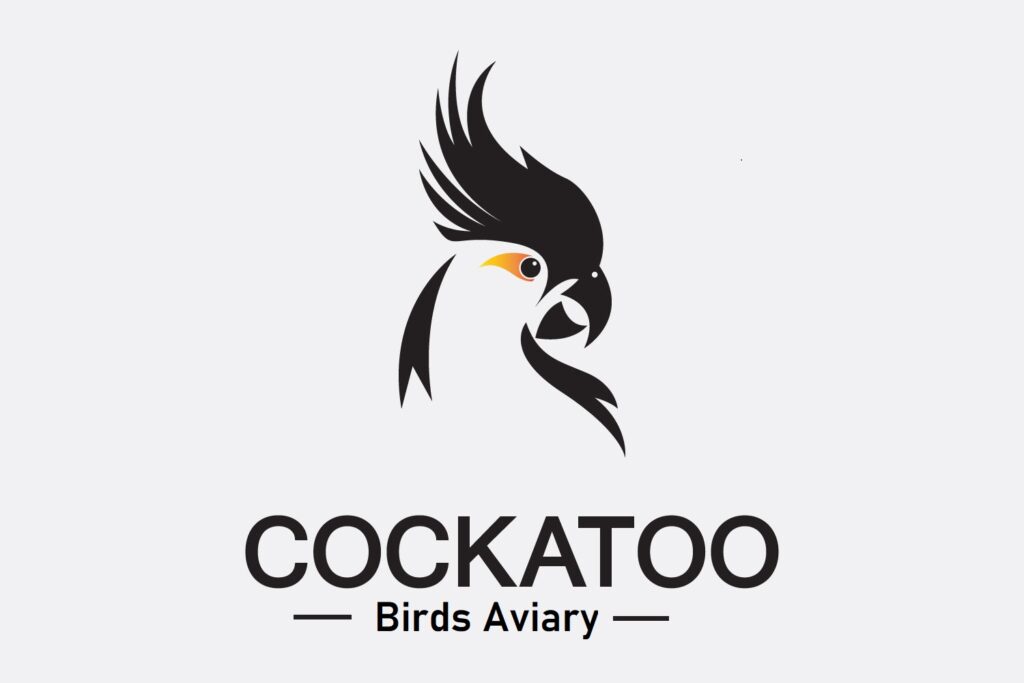
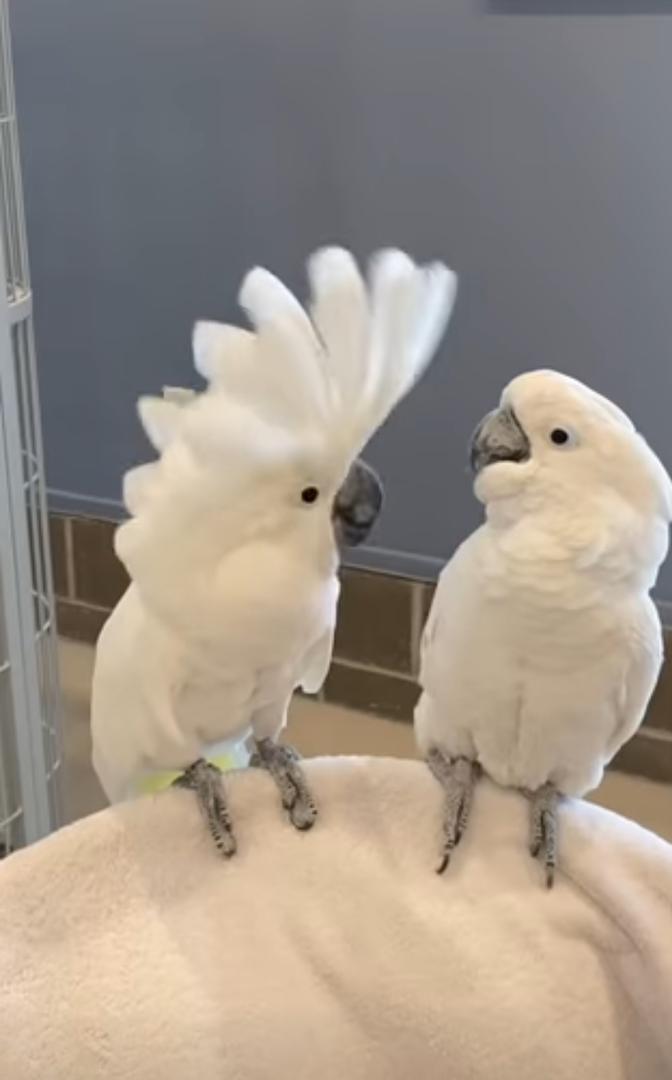
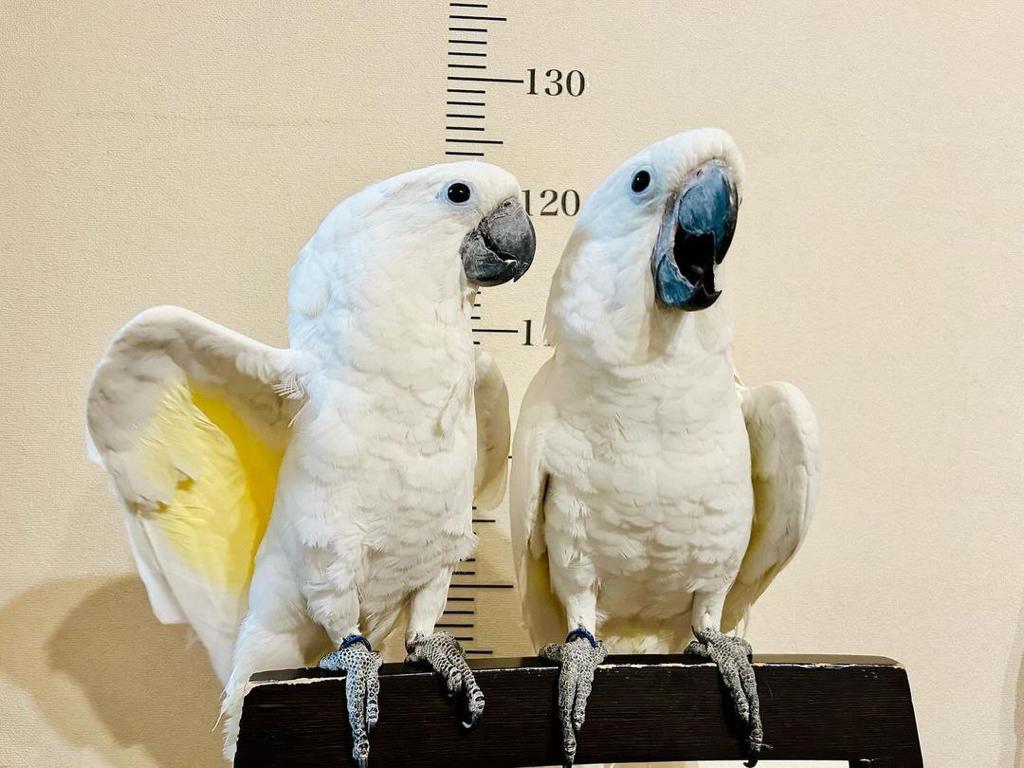
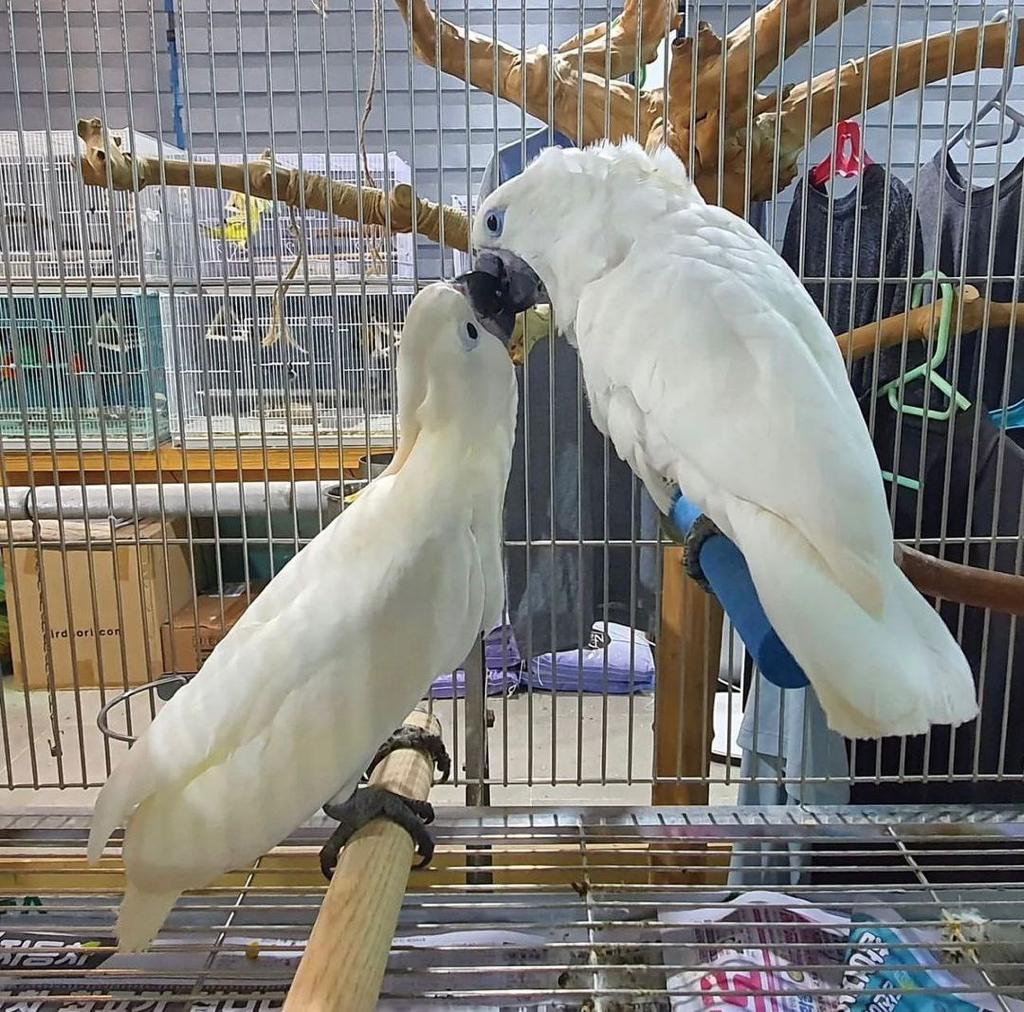
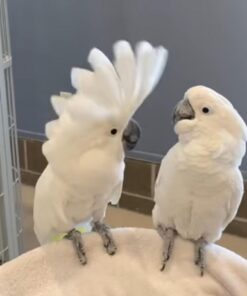
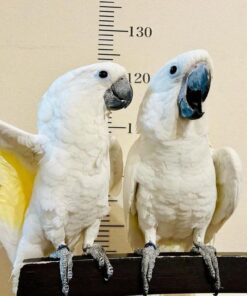
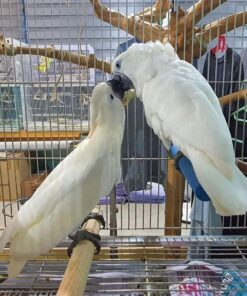
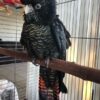
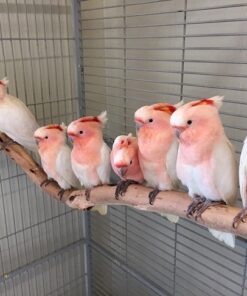
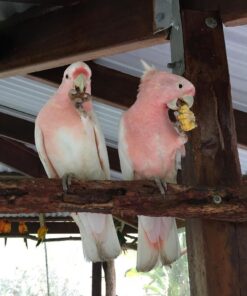
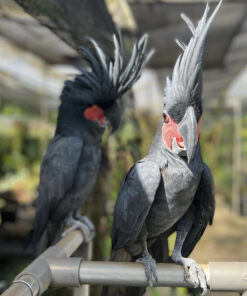
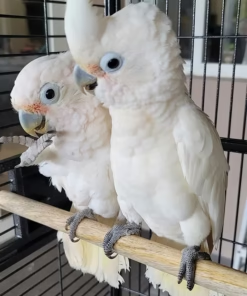
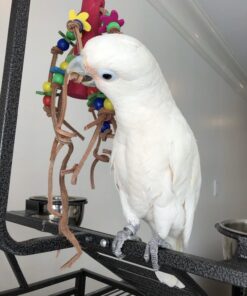
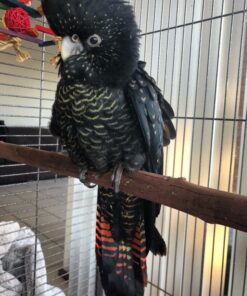
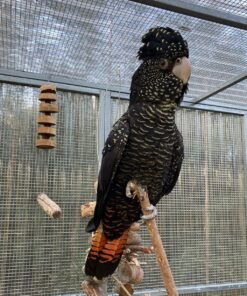
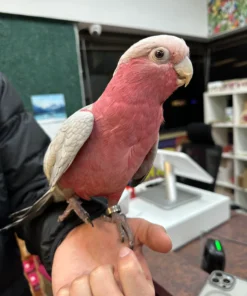
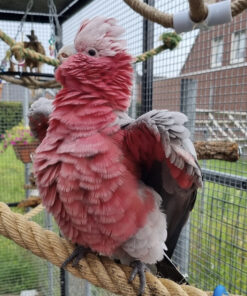
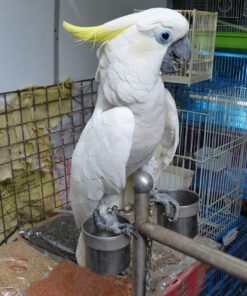
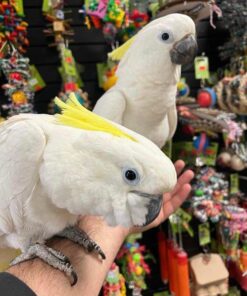
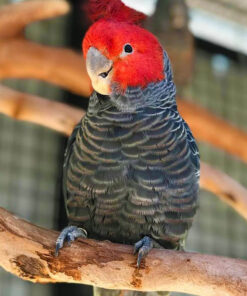
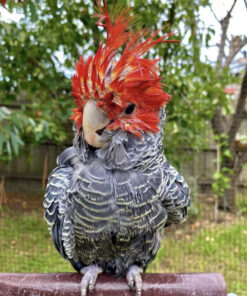
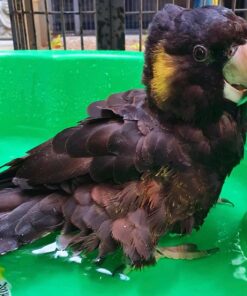
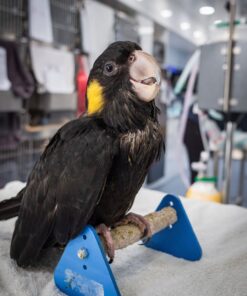
Reviews
There are no reviews yet.